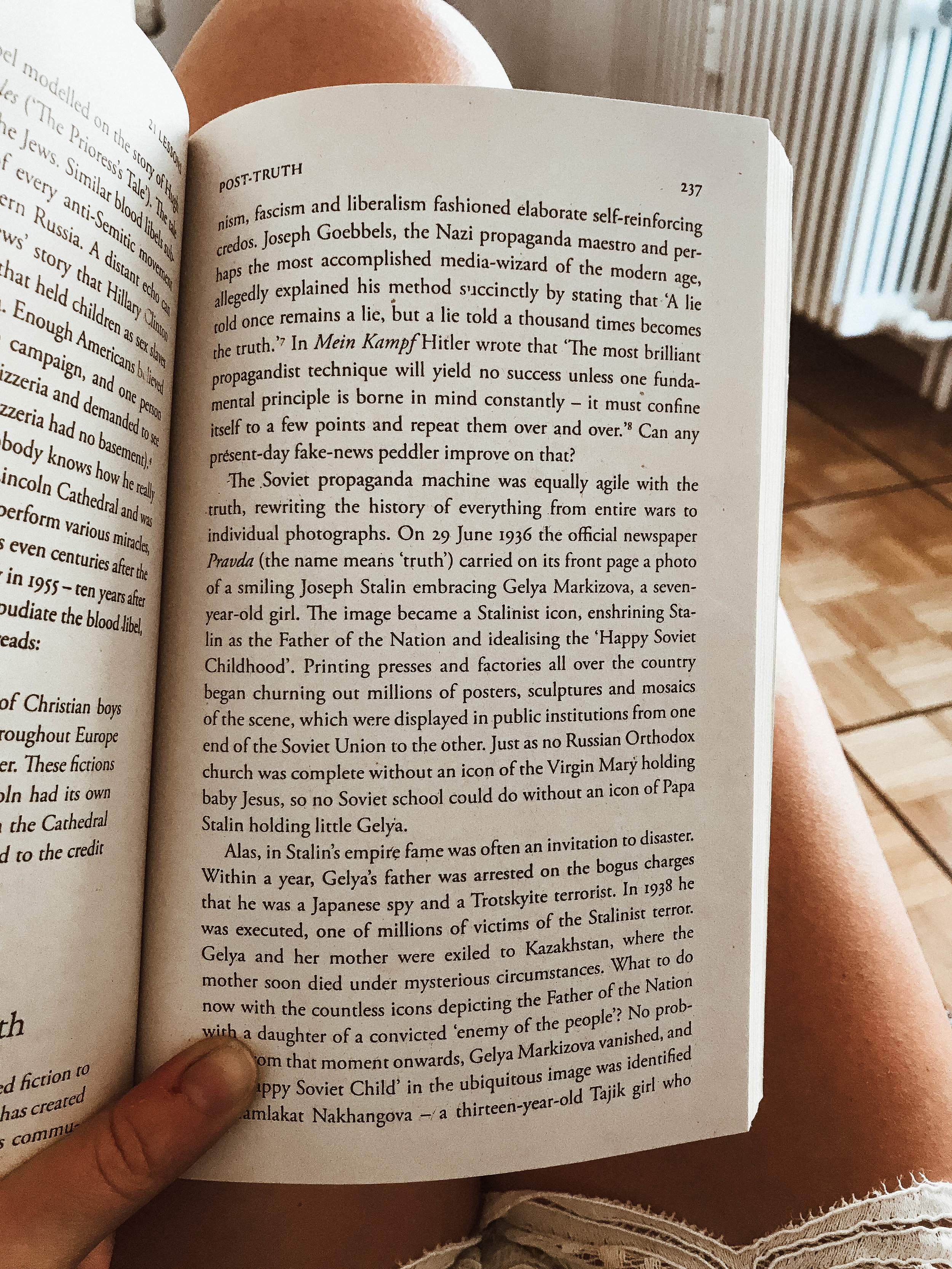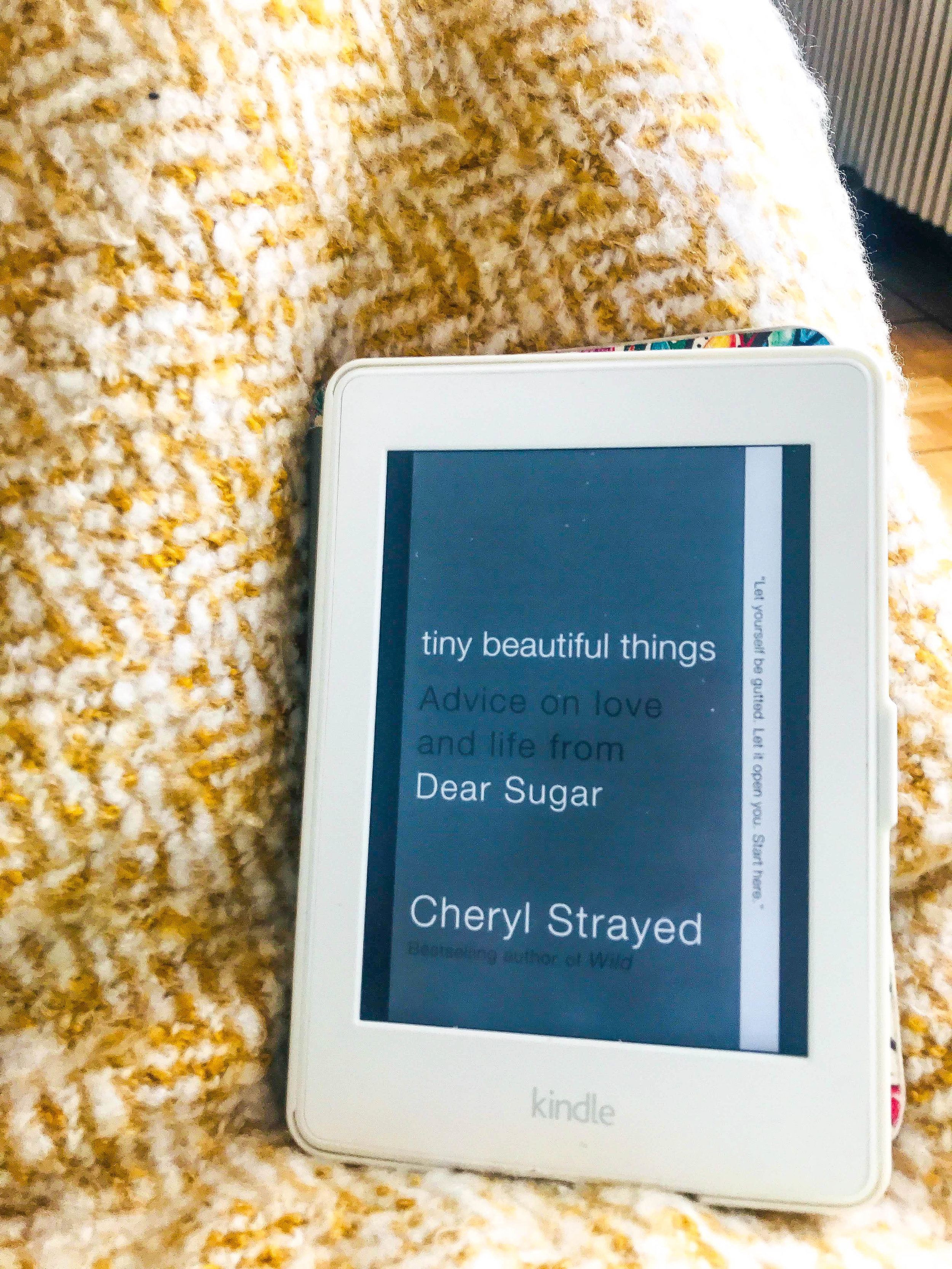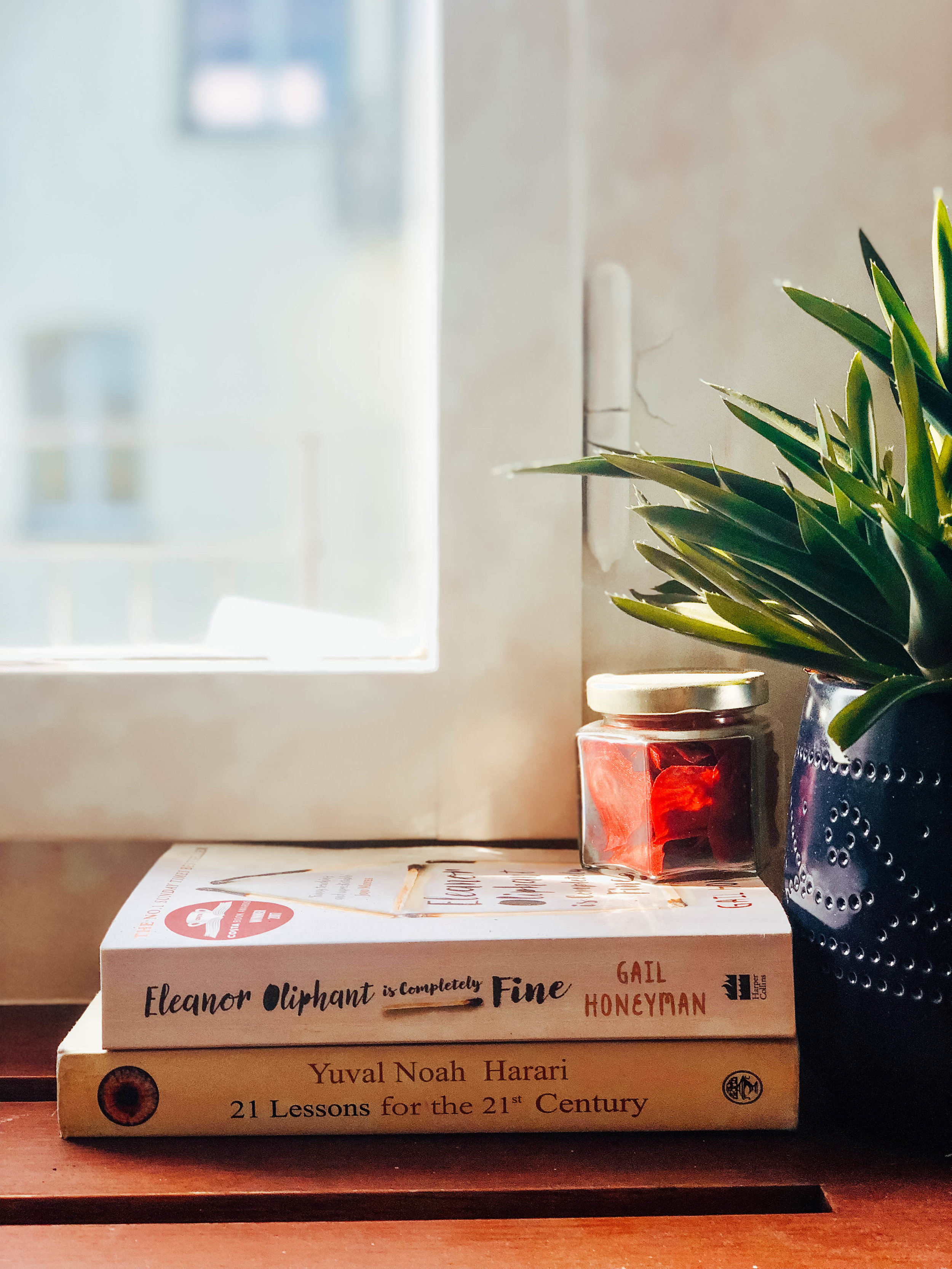What I've Read: Summer 2019
September has that promise of a fresh start. That slightly nostalgic, bouquet of new pencils, back-to-school feeling, right? I was one of those kids that loved the beginning of the school year: I loved getting my booklists, loved organizing my schedule, loved buying school supplies, loved learning. September has always felt like the beginning of a new year. And this year, it’s more true than ever, because for the first time in (twelve!) years, I had my first day of school on September 16th. So even though we technically still have another week until the autumnal equinox, for me - fall is here!
And so this means that summer 2019 is in the books. And also - that summer 2019 was one for the books. I read by the lake, by the river, on the train, on the mountains, on flights home. Basically wherever I went this summer, a novel (or two) came with me.
Normal People, Sally Rooney
Hm, what a complicated book we have here. I loved it, but I’ll be the first to say that I wouldn’t recommend it to everyone. It’s confusing...how it made me feel. And I think that is what makes it so polarizing. Normal People is described as a “coming of age” book about relationships, which sells it short completely but is also the best way to describe it. It’s a sort-of-love-story about Connell and Marianne, two young people growing up in small town Ireland together, who both move to Dublin for university in 2011. It’s an “almost but not quite there dance”: they come together, pull away, almost make it, leave each other, again and again. This makes it sound like a love story. It’s not. It’s weird and awkward and depressing and smart. The plot pulls you along, but it’s not a page-turner. The two main characters are remarkably compelling, highly frustrating, nearly completely unlikeable and perhaps because of all this, completely relatable. But that’s all I really want to say, because I feel like the less you know about this book before you read it, the better.
There There, Tommy Orange
An ambitious novel that weaves together the threads of 12 Native American characters all living in Oakland, California. For a short time these all seem like unique stories, until one by one the plots and characters slowly begin to tell a collective story, eventually coalescing around a community pow-wow. The Native American story is brutal, honest, sad, and powerful - a story about what is means to inhabit a land that is both yours and has been stolen from you. It’s stories that tend to get buried, and we don’t hear nearly often enough. The book starts and ends strong. Orange’s essay at the beginning of the book is powerful prose, a prologue in simple detail that describes the violence and genocide that indigenous people have endured and how it has been sanitized over the centuries. It’s a gut-punch, and sets the scene for the experiences of the book’s modern-day characters.
Strong as it is, it took me a while to really get into this book, despite the great writing and compelling stories. I had a hard time keeping the characters straight, and had to keep flipping back to a previous chapter to remind myself who they were and how they were connected to other characters, which I think halted some of the character development. And the end of the day, though, There There is an important novel from voices that we need more of in the United States, and I think it deserves to be read.
Our heads were on the penny first, of course, the Indian cent, and then on the buffalo nickel, both before we could even vote as a people—which, like the truth of what happened in history all over the world, and like all that spilled blood from slaughter, are now out of circulation.
A Game of Thrones (Book 1), George R.R. Martin
I know I’m not the only one who was painfully disappointed with the Game of Thrones series finale. I mean - what? So many thoughts. I figured there had to be something I was missing. There had to be so much more detail and character development and story arcs and politics and direwolves that the show, pressed for time and restricted by budget, simply had to leave out. So, I started back from the beginning, with the first book. Maybe by the time I finish Book Five, George R.R.Martin will have finally finished the last two books (although I’m not holding my breath).
Sure, the writing isn’t all that great. Don’t read Game of Thrones for great writing. This isn’t Tolkien, people. But read it for the world he created. Read it to learn more about the characters we grew to love. Read it for the characters the show completely left out. Read it for the dialogues and scheming and repartee. Read it for the stories of old Valayria and the magical shadowlands of Asshai and the children of the forest and the real Night King and the Seven Kingdoms and everything beyond. That’s why I read it, anyway, and I enjoyed every minute of it.
21 Lessons for the 21st Century, Yuval Noah Harai
After really enjoying Harai’s first book on the history of humanity, Sapiens, I was eager to continue on the Harai bandwagon. But try as I might, Homo Deus (his second book) did not pull me in in the same way his first book had. Maybe it was gazing too far into the future, maybe the concepts too theoretical, but I gave up about ⅓ of the way through. 21 Lessons, his newest book that discusses some of today’s biggest global issues, brought me back to the Harai train. I sped through the chapters. It’s almost like twenty-one individual essays, with each chapter covering a different topic: war, climate change, immigration, nationalism, the technological revolution, religion, liberalism.
I really appreciate how Yuval frames concepts. He is opinionated and blunt, to be sure, but I find he always brings unique insights or examples into the conversation. He’s such a stimulating writer that even if I disagree (and he brings in his personal views more in this book than in any of his others), I wanted to keep on reading and thinking. Remember though, he’s offering lessons, not necessarily solutions. The question of how we, as a society, are going to solve these problems is left largely unanswered. Gimmicky title aside (really - bleh!), this book at least helps gets the conversation started.
Tiny Beautiful Things: Advice on Love and Life from Dear Sugar, Cheryl Strayed
I savored this book in small bits and pieces - a couple letters over morning coffee, one or two in the afternoon when I needed a creativity boost or a lift, before bed, 10 minutes here, 15 minutes there. Tiny Beautiful Things is a collection of letters and responses from The Rumpus’s Dear Sugar advice column. Cheryl Strayed wrote anonymously as Sugar, and responded to an array of questions from readers all over, about anything and everything: you can’t pay your bills, you lose a parent, you can’t muster the courage to finish your novel, you can’t decide if you want children, sex, love, drugs, agony, ecstasy, trauma, joy, poverty, addiction, petty fights and 30-year grudges, fears, friends, family and all the tiny beautiful things in between.
Strayed calls the readers “Sweet Pea” or “Honey Bun”, shares stunning and heart-wrenchingly intimate stories about her own life, and delivers her insights with both strength and empathy. I enjoyed reading the letters and the responses alike, and found them both artfully written, poignant and simply full of the emotion that makes us all human.
I’ll never know and neither will you of the life you don’t choose. We’ll only know that whatever that sister life was, it was important and beautiful and not ours. It was the ghost ship that didn’t carry us. There’s nothing to do but salute it from the shore.
Eleanor Oliphant is Completely Fine, Gail Honeyman
I had been wanting to read this book for a while, and then one Friday afternoon, I stumbled across an English copy at a flea market in Zurich for one franc. I finished it by Sunday. When you are first introduced to Eleanor, it’s hard not to feel overwhelmingly sad for her. A single woman in her 30s who has had the exact same routine for years, with no friends, no family except for a verbally abusive mother in a mental institution. She’s oblivious to most social clues, is painfully unfiltered, drinks a bottle of vodka every weekend, and has a traumatic past that is slowly revealed. But she is, as she says, completely fine.
"I do not light up a room when I walk into it. No one longs to see me or hear my voice. I do not feel sorry for myself, not in the least. These are simply statements of fact." But once her routine is thrown off-kilter, and unexpected friendships are made, things begin to change. It’s a bit of a slow burn, because you need to get to know Eleanor in order to understand why she is the way she is. But I found Eleanor to be one of those characters that digs right in under your skin, and I don’t think I’ll be forgetting her story anytime soon.
Next up for me to review this fall: Circe, A Fine Balance, The Overstory, On Earth We Are Briefly Gorgeous (honestly, is there a more beautiful book title than this?), and The Ten Thousand Doors of January. That is, if I can peel myself away from the rest of the Game of Thrones series. Along, of course, with hundreds and hundreds of pages of academic journals and articles which I am equally excited about - but, talk to me in a month and see how excited I am then.
What did you read this summer? Do tell!










